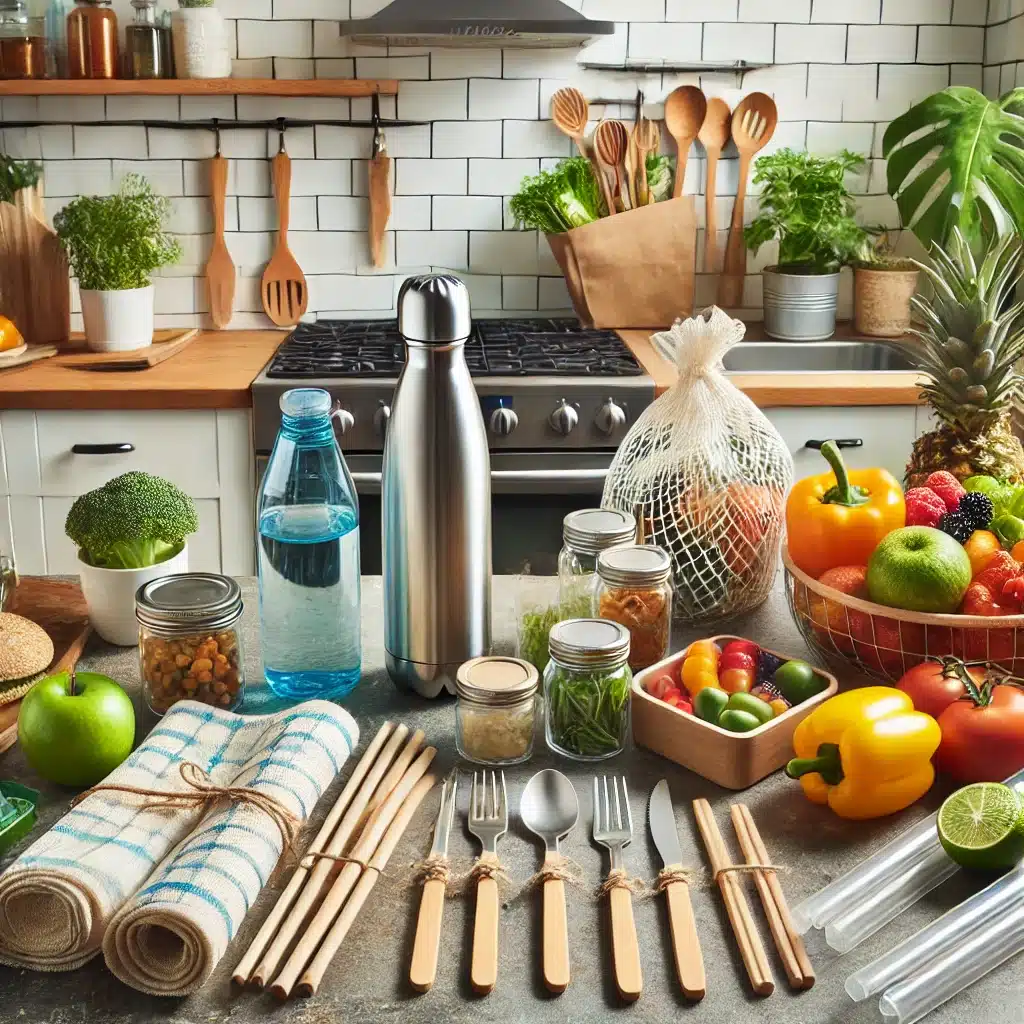Plastic waste has become a major environmental concern, polluting our oceans, harming wildlife, and contributing to the growing issue of climate change. While plastic has revolutionized convenience, its widespread use comes at a significant cost to the planet. One of the most effective ways to combat this problem is by reducing plastic waste in your daily life. In this article, we will explore practical steps on how to reduce plastic waste in your daily routine, empowering you to make small yet impactful changes.
Table of Contents
Why is Reducing Plastic Waste Important?
Before diving into the steps on how to reduce plastic waste in your daily routine, it’s crucial to understand the environmental impacts of plastic. Plastics take hundreds to thousands of years to decompose, filling up landfills and leaching harmful chemicals into the environment. Each year, around 8 million tons of plastic end up in our oceans, causing severe damage to marine ecosystems and contributing to the deaths of countless animals. Reducing plastic use not only helps mitigate these environmental issues but also reduces our carbon footprint.
Practical Ways to Reduce Plastic Waste in Your Daily Routine
1. Bring Reusable Bags for Shopping
One of the easiest ways to reduce plastic waste is by switching from single-use plastic bags to reusable shopping bags. Whether you’re grocery shopping or picking up a few items, carrying a reusable bag significantly reduces the demand for plastic. Keep a few foldable bags in your car or backpack to ensure you’re always prepared.
Key Tip: Opt for bags made from sustainable materials like cotton or jute, and avoid plastic-based reusable bags, as they can contribute to plastic waste in the long run.
2. Use a Reusable Water Bottle
Plastic water bottles are one of the leading contributors to plastic pollution. Instead of buying bottled water, invest in a high-quality, reusable water bottle made from stainless steel or glass. Not only will this help reduce plastic waste, but it will also save you money in the long term.
Key Tip: Many public places now have water refilling stations, making it easier than ever to refill your bottle throughout the day.
3. Say No to Plastic Straws
If you’re wondering how to reduce plastic waste in your daily routine, one of the simplest actions is to ditch plastic straws. Straws are unnecessary in most situations, and reusable alternatives made from stainless steel, silicone, or bamboo are widely available. Many restaurants and cafes now offer paper or compostable straws, but you can also bring your own reusable straw when dining out.
Key Tip: If you prefer drinking with a straw, carry a reusable one with you and request “no straw” when ordering drinks.
4. Switch to Reusable Coffee Cups
Millions of disposable coffee cups are used every day, most of which are lined with plastic and cannot be easily recycled. By carrying a reusable coffee cup, you can significantly reduce plastic waste. Many coffee shops even offer discounts for bringing your own cup, providing both environmental and financial incentives.
Key Tip: Look for reusable cups made from stainless steel or bamboo, which are durable and environmentally friendly.
5. Avoid Single-Use Plastic Utensils
Another effective way to reduce plastic waste in your daily routine is by avoiding single-use plastic utensils. Whether you’re ordering takeout or eating at a fast-food restaurant, bring your own set of reusable cutlery. Many portable options are available, including sets made from bamboo, stainless steel, or even compostable materials.
Key Tip: Keep a reusable cutlery set in your bag or car so that you’re always prepared when eating on the go.
6. Opt for Plastic-Free Packaging
Many products, from food to toiletries, come wrapped in unnecessary plastic packaging. Whenever possible, choose items that come in plastic-free or recyclable packaging. For example, buy fresh produce that isn’t pre-packaged in plastic, or opt for products that come in glass jars or cardboard boxes.
Key Tip: Visit local farmers’ markets, where you can buy fresh, unpackaged produce and support sustainable farming practices.
7. Buy in Bulk
Buying in bulk is a great way to reduce the amount of plastic packaging in your daily routine. Many stores now offer bulk sections where you can bring your own containers to fill up on items like grains, pasta, nuts, and spices. This not only reduces plastic waste but also allows you to buy just the amount you need, reducing food waste as well.
Key Tip: Bring your own reusable bags or jars when shopping in bulk to avoid using plastic bags provided at the store.
8. Switch to Bar Soap and Shampoo Bars
Liquid soaps and shampoos often come in plastic bottles that are not always recyclable. A simple switch to bar soap and shampoo bars can help reduce your plastic consumption. These products are just as effective as their liquid counterparts and often come in minimal, recyclable packaging.
Key Tip: Look for soap and shampoo bars that are made from natural ingredients and come in compostable or recyclable packaging.
9. Choose Reusable Food Storage
Plastic wrap and plastic sandwich bags are common in most kitchens but contribute significantly to plastic waste. By switching to reusable food storage options, such as silicone bags, beeswax wraps, or glass containers, you can reduce plastic use in your daily routine.
Key Tip: Beeswax wraps are a great alternative to plastic wrap, as they are reusable, washable, and biodegradable.
10. Avoid Microplastics in Personal Care Products
Microplastics are tiny plastic particles often found in personal care products like exfoliating scrubs, toothpaste, and even some cosmetics. These particles end up in waterways and oceans, contributing to plastic pollution. Look for products that are labeled “microplastic-free” or opt for natural alternatives.
Key Tip: Read ingredient labels carefully and avoid products that contain polyethylene (PE) or polypropylene (PP), as these are common forms of microplastics.
Benefits of Reducing Plastic Waste
Now that we’ve covered several ways to reduce plastic waste in your daily routine, let’s explore some of the benefits of making these changes:
- Environmental Impact: Reducing plastic waste helps protect wildlife, prevent pollution, and reduce the demand for fossil fuels used in plastic production.
- Financial Savings: Many reusable alternatives, such as water bottles and coffee cups, save money over time by eliminating the need for disposable products.
- Health Benefits: By avoiding plastic, especially in food packaging, you can reduce your exposure to harmful chemicals like BPA, which can leach from plastics into food and drinks.
- Sustainable Living: Reducing plastic use is an essential step toward living a more sustainable lifestyle, minimizing your carbon footprint, and contributing to a healthier planet.
Conclusion
Learning how to reduce plastic waste in your daily routine is one of the most impactful steps you can take toward a more sustainable lifestyle. By making small changes, like using reusable bags, bottles, and cutlery, you can significantly reduce the amount of plastic that ends up in landfills and oceans. It’s not about being perfect but about making conscious decisions that benefit both the environment and future generations.
By implementing these simple strategies in your daily life, you’ll not only reduce plastic waste but also inspire others to do the same. Each step counts, and together, we can make a big difference in the fight against plastic pollution

